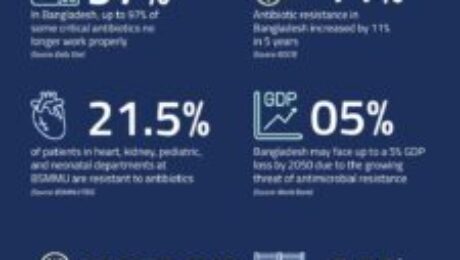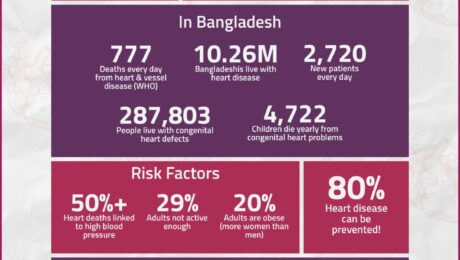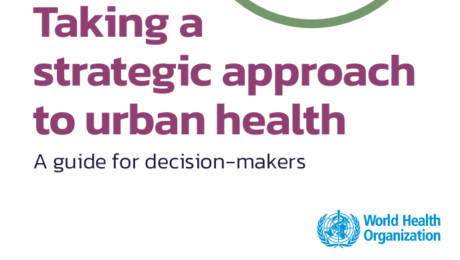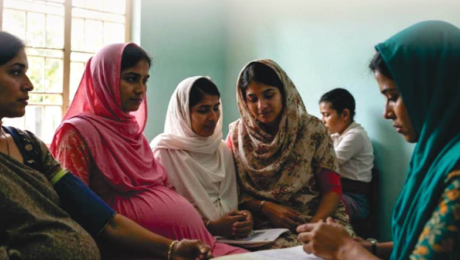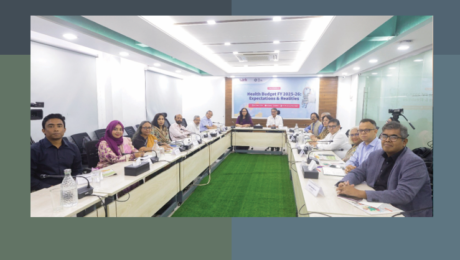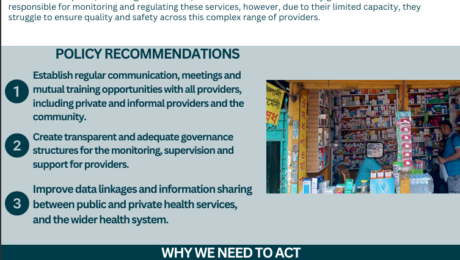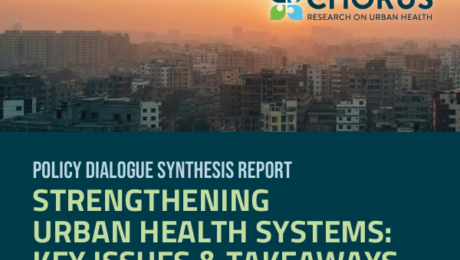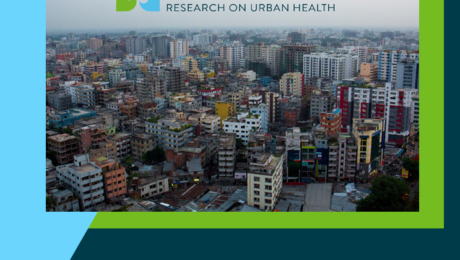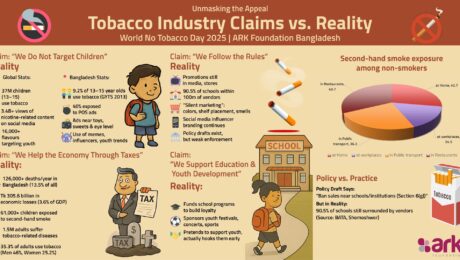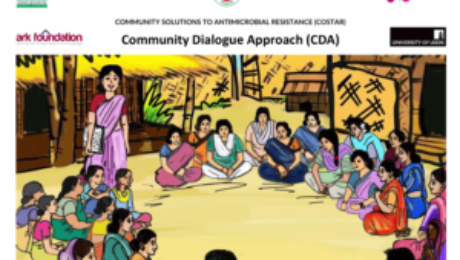Only a week-long awareness campaign is not enough, we must stay alert to antimicrobial resistance (AMR) every single day. A recent study reveals that, 𝟒𝟏% 𝐨𝐟 𝐈𝐂𝐔 𝐩𝐚𝐭𝐢𝐞𝐧𝐭𝐬 𝐚𝐫𝐞 𝐧𝐨𝐭 𝐫𝐞𝐬𝐩𝐨𝐧𝐝𝐢𝐧𝐠 𝐭𝐨 𝐚𝐧𝐭𝐢𝐛𝐢𝐨𝐭𝐢𝐜𝐬 𝐢𝐧 𝐁𝐚𝐧𝐠𝐥𝐚𝐝𝐞𝐬𝐡. As we misuse antibiotics or stop them midway, these helped bacteria to learn, survive and create antimicrobial resistance in our
- Published in Infographics, Resources
No Comments
Heart disease is one of the leading causes of death in Bangladesh, claiming the lives of more than 205,000 people every year, that’s an average of 562 deaths each day (Institute for Health Metrics and Evaluation – IHME, 2021). World Health Organization (WHO) estimates put the toll even higher, at 777 daily deaths from heart and
- Published in Infographics, Resources
Read the full report here We’re delighted to share that ARK Foundation has been featured in the new World Health Organization (WHO) publication, ‘𝐓𝐚𝐤𝐢𝐧𝐠 𝐚 𝐒𝐭𝐫𝐚𝐭𝐞𝐠𝐢𝐜 𝐀𝐩𝐩𝐫𝐨𝐚𝐜𝐡 𝐭𝐨 𝐔𝐫𝐛𝐚𝐧 𝐇𝐞𝐚𝐥𝐭𝐡: 𝐀 𝐆𝐮𝐢𝐝𝐞 𝐟𝐨𝐫 𝐃𝐞𝐜𝐢𝐬𝐢𝐨𝐧-𝐌𝐚𝐤𝐞𝐫𝐬.’ The WHO report highlights that with most of humanity now living in cities; health-oriented, sustainable urban development is no longer a
Download Report Bangladesh is preparing to introduce a maternity insurance scheme by 2026, aligning with its National Social Security Strategy. This report presents an evidence-based framework tailored to the country’s healthcare and labour realities, especially for low-income and informal sector women. Drawing on national data and international best practices, it outlines a universal, mandatory, and
- Published in Featured, Maternal Newborn Child and Reproductive Health, Report, Resources
Download PDF Report on Roundtable on ‘Health Budget FY2025-26: Expectations & Realities’ The national budget for FY 2025–26 in Bangladesh carries significant importance, as the country stands at a critical juncture in its journey toward a new era. Under the leadership of the interim government, Finance Advisor Dr. Saleh Uddin Ahmed unveiled a Tk 790
Due to the rapid increase in the urban population, public sector health services in urban settings are under strain. There are limited accessible and available health facilities with insufficient medicines and supplies and inadequate health workers with training appropriate to the changing disease burden in the public health system. Over time, these gaps in the
- Published in Policy Brief, Resources
The Community-led Responsive and Effective Urban Health System (CHORUS) is a research programme consortium that unites health researchers from Africa, South Asia, and the UK. It collaborates with communities, health professionals, and city-level decision-makers to develop and test strategies aimed at improving the health of the poorest urban residents. CHORUS and ARK Foundation hosted
The Community-led Responsive and Effective Urban Health System (CHORUS) is a Research Programme Consortium that brings together health researchers from Africa, South Asia, and the UK. CHORUS collaborates with communities, health professionals, and city-level decision makers to develop and test strategies for improving the health of the poorest urban residents. As part of its ongoing
While the tobacco industry claims to support the economy, its true impact is devastating: causing over 8 million deaths globally each year, including 126,000 in Bangladesh.To replace these ‘losses’, the industry targets the next generation with flavoured, colourful, and youth-friendly products. The real threat now is not just what is inside but how it is
- Published in Infographics, Resources
This flipbook is an intervention material developed under the COSTAR project to be used by the Community Dialogue Facilitators (CDA) facilitators in different sub-districts of Cumilla. The CDA Facilitators used this flipbook to create awareness among the local people in their villages on Antimicrobial Resistance (AMR) and its harmful consequences. This is an open access materials

